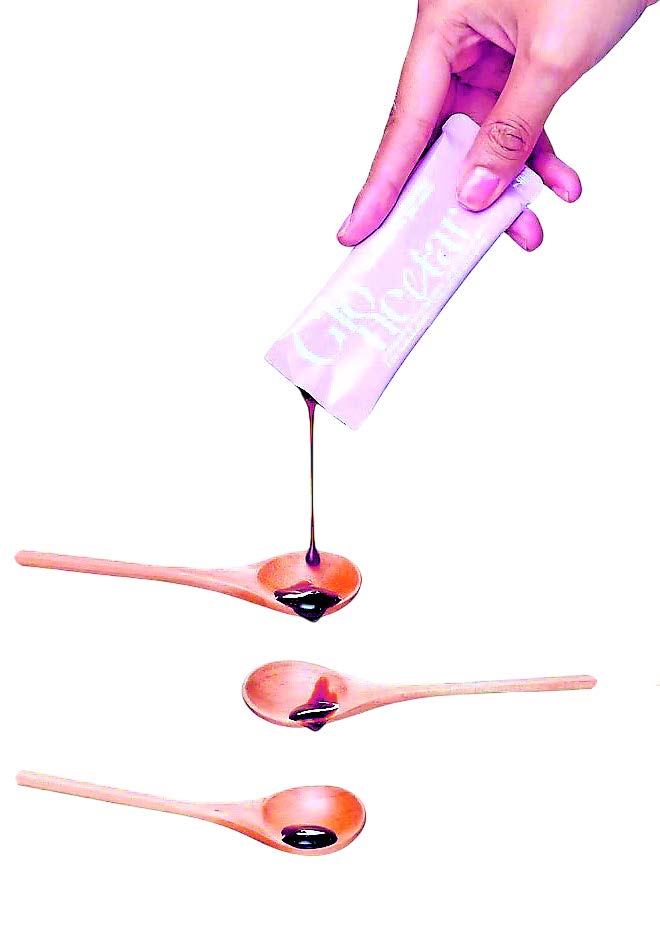
As edible skincare gains popularity in Malaysia, health professionals warn that what’s safe for skin may not be safe for the stomach
by SUFEA SALEHUDDIN
THE allure of achieving beauty from within has led to an increasing interest in edible cosmetics among Malaysians. This trend has gained traction after a China-based skincare brand promoted its products as safe for consumption, prompting the Health Ministry to intervene.
Health Minister Datuk Seri Dr Dzulkefly Ahmad stated that the National Pharmaceutical Regulatory Agency (NPRA) had demanded clarification from the said company, highlighting that cosmetic products should not make claims beyond their intended topical use.
The growing trend of edible cosmetics in Malaysia has raised questions about their safety and effectiveness, with healthcare professionals cautioning consumers against potential risks.
Malaysian Medical Association (MMA) president Datuk Dr Kalwinder Singh Khaira highlighted significant safety concerns surrounding this trend, particularly when topical skincare products are consumed orally.
“If an edible skincare product is formulated for topical use only but is consumed orally, there are significant safety concerns from a medical standpoint,” he explained to The Malaysian Reserve (TMR).
One of the primary concerns is that many skincare products are developed specifically for skin absorption, not digestion. Although the ingredients may be recognised as safe for topical application, they have not undergone the necessary testing to confirm their safety when ingested.

Cuura Glo Nectar is the new contender in the edible skincare trend
This lack of oral safety data means that consumers could unknowingly expose themselves to harmful effects. Additionally, many topical products contain preservatives, emulsifiers, and stabilisers that are not meant to be ingested.
“For instance, parabens, which are frequently used as preservatives, have been associated with potential endocrine-disrupting effects. Petroleum-based compounds, such as silicones, are not digestible and could cause gastrointestinal distress,” Dr Kalwinder said.
Certain fragrances and essential oils commonly found in skincare products can also be harmful when ingested. Ingredients such as tea tree and eucalyptus oils, which are often used in topical applications, are known to be toxic if consumed.
Beyond preservatives and stabilisers, Dr Kalwinder also warned of the dangers posed by active ingredients that are typically found in skin-care products if consumed orally.
“Some topical formulations contain high concentrations of retinoids and hydroquinone, both of which can cause serious toxicity if ingested,” Dr Kalwinder said.
Retinoids, which are often used for their anti-aging and skin-renewing properties, can lead to severe side effects when consumed in excessive amounts. Potential risks include liver damage, birth defects, and bone loss.


Similarly, hydroquinone, a skin-lightening agent, can cause a condition known as methemoglobinemia, which reduces the blood’s ability to carry oxygen effectively.
Additionally, peptides, which are commonly used in skincare for their anti-ageing and firming properties, may not be effective when ingested. Unlike dietary proteins that are designed for digestion and absorption, certain peptides in skincare products are not formulated for oral bioavailability.
As a result, they may be broken down by the digestive system before they can provide any intended benefits.
Given the potential health risks associated with edible skincare, medical professionals are urging regulatory authorities to implement stricter guidelines to ensure consumer safety.
While traditional oral supplements undergo stringent testing for safety and efficacy, many edible skincare products fall into a regulatory grey area, making it difficult for consumers to distinguish between scientifically backed products and those that make misleading claims.
Dr Kalwinder stressed the need for stronger oversight to prevent misleading marketing practices that could give consumers a false sense of security. “Strict regulations and clearer guidelines should be introduced to prevent misleading claims about edible skincare. This is crucial to protect consumers from false promises, potential health risks, and unverified claims,” Dr Kalwinder said.
Dr Kalwinder advised consumers to exercise caution and avoid consuming any skincare product that has not been specifically approved for oral use.
“It is crucial for consumers to understand that just because something is marketed as ‘natural’ or ‘edible’ does not necessarily mean it is safe for ingestion,” Dr Kalwinder added.
On the other hand, KPJ Johor Specialist Hospital dermatologist Dr Lim Yee Ting highlighted the dangers of applying food-based products directly onto the skin.
“Food-based products are meant for consumption. There are risks of developing skin irritation, burning, or blistering if these products are applied directly instead of being ingested. Furthermore, there is no evidence to support their benefits when applied to the skin,” she said.
She emphasised that good skin-care products undergo rigorous clinical research to incorporate hypoallergenic components and skin barrier protection ingredients.
“These formulations enhance the benefits of moisturising the skin while preventing damage and premature ageing,” she added.
Dr Lim also noted that most skincare ingredients are not designed for both topical application and oral consumption. Differences in formulation, absorption, and potential toxicity mean that professionals do not recommend using the same ingredients for both purposes.
She further addressed concerns about preservatives and emulsifiers in edible skincare products.
There is no known skincare product that is both edible and topically beneficial while also being proven effective for skin health.
Maintaining a healthy lifestyle and practising sun protection remain essential for good skin.
Dr Lim also highlighted the distinction between cosmetic-grade and food-grade ingredients.
“Food-grade ingredients may be used in cosmetics, but cosmetic-grade ingredients cannot be ingested.
“Cosmetic ingredients undergo rigorous assessments, including clinical studies to evaluate their efficacy and safety, as well as their potential for irritation or adverse reactions,” she explained.
She warned that consuming skincare products could lead to dermatological conditions.
Inappropriate consumption may result in redness, burning, swelling, peeling, or even scarring.
Beyond skin effects, it may also lead to internal organ dysfunction if taken without medical consultation.
For consumers looking to verify the safety of edible skincare products, she advised caution. A comprehensive approach includes checking regulatory compliance, reviewing ingredients, understanding manufacturer claims, and looking for relevant certifications, while transparency and reputation of the brand should also be considered. Dr Lim urged consumers to be mindful of the long-term implications of ingesting skincare products.
“Adverse events can occur if inappropriate products are consumed, affecting both the skin and internal organs. Seeking medical advice before consumption is always the safest approach,” she said.
Despite these warnings, edible skincare continues to gain popularity among Malaysian consumers.
Cuura Malaysia, for instance, has introduced an “Edible Skincare” line that emphasises formulations designed to promote a healthy glow from within.


Dietitian Nur Fasyareena Sharuddin explained that while some edible skin-care products contain safe ingredients, they are fundamentally different from food supplements. “Skincare is formulated to be used topically, while ingestible products are meant for digestion. Some formulations could be harmful when consumed, as they are not tested or approved for ingestion,” she said.
She emphasised that a balanced diet remains the most effective way to maintain skin health. Eating a diet rich in antioxidants, vitamins, and minerals — along with adequate hydration — is key to healthy skin. These nutrients support collagen production and protect against harmful UV rays.
“Some skincare products contain allergens such as nuts, gluten, or essential oils, which could trigger allergic reactions if consumed unknowingly.
“Unlike food, skincare products do not always adhere to food labelling laws that require allergen declarations,” Nur Fasyareena said.
Excessive vitamin A intake, for instance, has been linked to liver damage, nausea, headaches, and birth defects if consumed during pregnancy.
While some consumers are excited about the idea of edible skincare, others remain sceptical about its effectiveness.
Sarah Bakri, 29, from Kuala Lumpur, shared her experience trying an edible collagen jelly from a well-known local brand but was left unconvinced.
“I was intrigued by the idea of edible skincare, so I tried a collagen jelly from a well-known local brand.
“The taste was surprisingly good — like a mild fruit gummy — but after a month, I didn’t see any major changes in my skin. It was hydrating, but I feel like drinking more water would have had the same effect.
“I really wanted to believe in it because the concept is interesting, but after finishing one box, I felt like I was just paying for expensive candy,” she shared with TMR.
Sarah spent RM150 for it, which she said was a lot considering she could buy a good topical serum for the same price.
Meanwhile, Faisal, 34, from Selangor, expressed similar doubts. He bought a probiotic beauty drink after seeing an Instagram ad that promised to improve skin texture, but after a few weeks, there was no difference.
“I think it might have had some general health benefits, but I wouldn’t say my skin looked any better than before. In the end, I feel like it’s just another wellness trend.
“Maybe if someone has a really poor diet, these products could help a little, but for me, I’d rather just stick to my usual skincare routine and eat well,” he said.
Some users have reported minor improvements in skin hydration or texture but remain doubtful whether these changes are significantly different from simply drinking more water or consuming collagen-rich foods.
The popularity of edible cosmetics has also sparked interest in how Malaysian social media influencers are marketing these products to their followers, which brings attention to influencer ethics and the responsibility they bear in promoting safe, regulated products.
Influencer Noor Ariesya Farha Abdul Wahab has received many sponsorship offers from beauty brands, including edible skincare.
“While I do try the products myself before recommending them, I always advise my followers to do their research and consult professionals before consuming anything,” she said.
She acknowledged that influencers play a crucial role in shaping consumer behaviour and must be transparent about potential risks. She noted that there is a fine line between promoting a product and misleading people.
“I make sure to disclose whether a product is backed by scientific research or just a marketing trend,” she added.
While the trend gains momentum, dermatologists and dietitians urged consumers to approach it with caution, ensuring that products meet safety standards and offer proven benefits.
Until more scientific research supports the effectiveness of edible skincare, they stress that traditional methods — such as using clinically tested topical skincare and maintaining a healthy diet — remain the best approach to achieving and maintaining healthy skin.
- This article first appeared in The Malaysian Reserve weekly print edition
The post Beauty from within? Edible cosmetics face scrutiny appeared first on The Malaysian Reserve.

